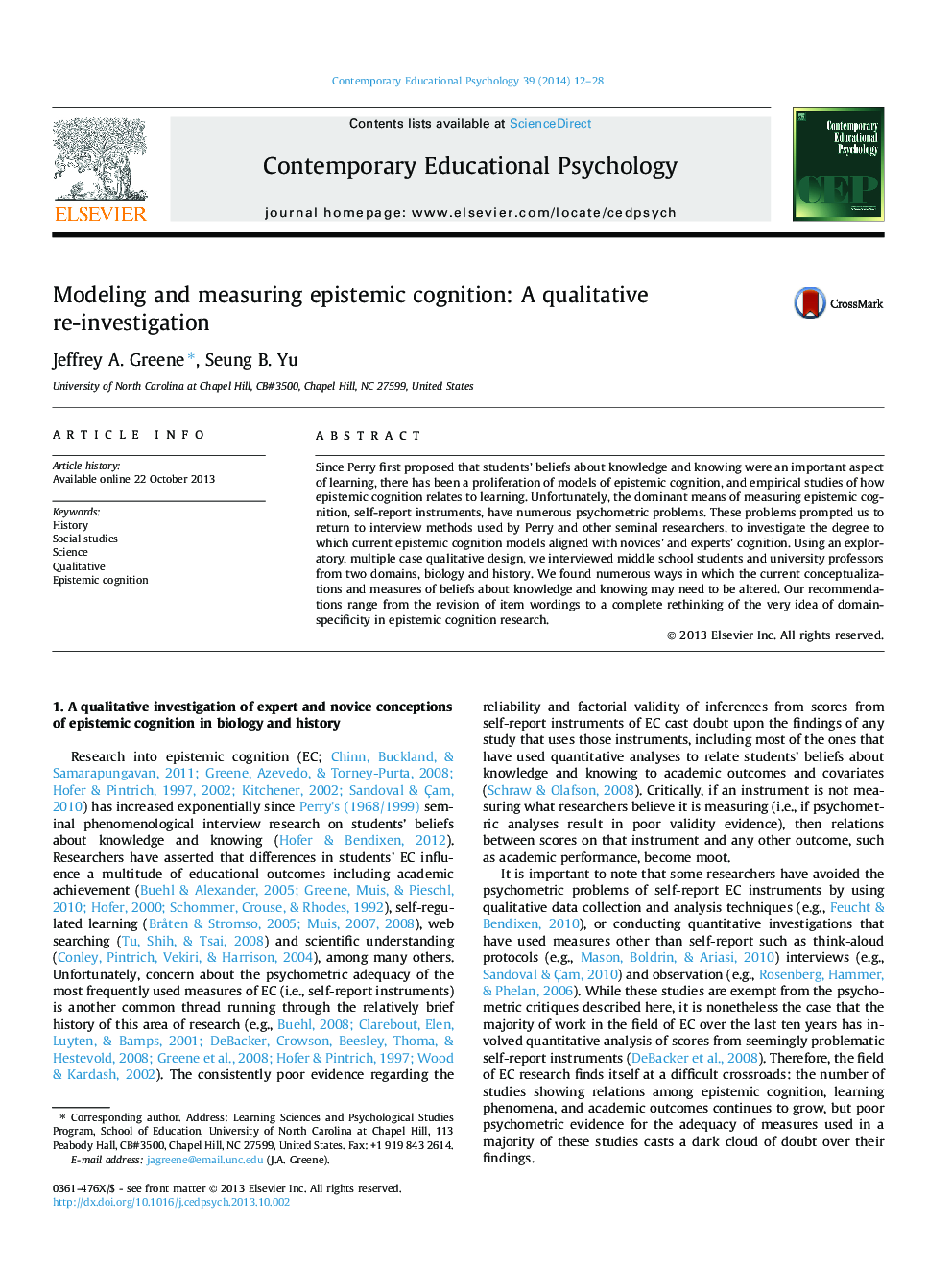| Article ID | Journal | Published Year | Pages | File Type |
|---|---|---|---|---|
| 352698 | Contemporary Educational Psychology | 2014 | 17 Pages |
•Qualitative investigation of epistemic cognition models and measurement.•Epistemic cognition should examine declarative, procedural, and principled knowledge.•Domain differences in epistemic cognition imply differing models.•Beliefs about authority are not reliable indicators of sophistication.•Implications for survey development and research are discussed.
Since Perry first proposed that students’ beliefs about knowledge and knowing were an important aspect of learning, there has been a proliferation of models of epistemic cognition, and empirical studies of how epistemic cognition relates to learning. Unfortunately, the dominant means of measuring epistemic cognition, self-report instruments, have numerous psychometric problems. These problems prompted us to return to interview methods used by Perry and other seminal researchers, to investigate the degree to which current epistemic cognition models aligned with novices’ and experts’ cognition. Using an exploratory, multiple case qualitative design, we interviewed middle school students and university professors from two domains, biology and history. We found numerous ways in which the current conceptualizations and measures of beliefs about knowledge and knowing may need to be altered. Our recommendations range from the revision of item wordings to a complete rethinking of the very idea of domain-specificity in epistemic cognition research.
